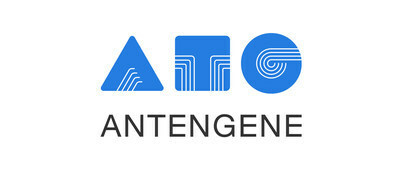SHANGHAI and HONG KONG, March 19, 2024 /PRNewswire/ — Antengene Corporation Limited (“Antengene” SEHK: 6996.HK), a leading innovative, commercial-stage global biopharmaceutical company dedicated to discovering, developing and commercializing first-in-class and/or best-in-class therapeutics in hematology and oncology, today announced that results of its preclinical studies on ATG-101 (PD-L1/4-1BB bispecific antibody) were published in Cancer Research in a paper titled ATG-101 is a tetravalent PD-L1×4-1BB bispecific antibody that stimulates anti-tumor immunity through PD-L1 blockade and PD-L1-directed 4-1BB activation[1]. Cancer Research, a journal of the American Association for Cancer Research (AACR), publishes impactful original studies, reviews, and opinion pieces of high significance to the broad cancer research community. It has a 5-year impact factor of 13.
“Although immune checkpoint inhibitors (ICIs) have transformed cancer treatment, many patients do not achieve desired treatment outcomes due to innate or acquired resistance,” said Dr. Bing Hou, Antengene’s Head of Discovery Science & Translational Medicine, and the corresponding author of the paper. “While 4-1BB has been recognized as a powerful immune stimulating target, the development of therapeutic 4-1BB agonists has been hampered by hepatotoxicity and suboptimal efficacy. In the Cancer Research paper, we present studies used to characterize the differentiated preclinical features and mechanism of action of ATG-101, a tetravalent PD-L1/4-1BB bispecific antibody. ATG-101 activates 4-1BB+ T cells in a PD-L1-crosslinking dependent manner, which minimizes the hepatotoxicity associated with existing 4-1BB agonists and suppresses the growth of ICI-resistant tumors. We wish to continue contributing to the academic community through publications in the future.”
“The dedication and relentless efforts of our research team have led to the publication of the preclinical work in the prestigious journal Cancer Research and the development of a new clinical program,” said Dr. Jay Mei, Antengene’s Founder, Chairman and CEO.” The Phase I study of ATG-101 is currently in the sixth dose escalation cohort and the drug is approaching its biologically active dose with good tolerability. Early observations indicate that a partial response has been observed in a patient with microsatellite stable (MSS) metastatic colon adenocarcinoma with liver metastasis. Moreover, there have also been multiple patients with durable stable disease. These early observations are indeed very encouraging. Moving forward, we will continue working closely with the study sites and investigators to bring a new treatment option to patients who have previously relapsed/progressed on ICIs.”
Reference
|
[1] ATG-101 is a tetravalent PD-L1×4-1BB bispecific antibody that stimulates anti-tumor immunity through PD-L1 blockade and PD-L1-directed 4-1BB activation. Cancer Res (2024). DOI:10.1158/0008-5472.CAN-23-2701. |
About ATG-101
ATG-101 is a novel PD-L1/4-1BB bispecific antibody that was designed to block the binding of immunosuppressive PD-1/PD-L1 and conditionally induce 4-1BB stimulation, thus activating anti-tumor immune effectors, while delivering enhanced anti-tumor activity, with an improved safety profile. ATG-101 is currently being developed in Australia, China, and the U.S. in the Phase I study for the treatment of advanced/metastatic solid tumors and B-cell non-Hodgkin lymphoma (B-NHL).
About Antengene
Antengene Corporation Limited (“Antengene”, SEHK: 6996.HK) is a leading commercial-stage R&D-driven global biopharmaceutical company focused on the discovery, development, manufacturing and commercialization of innovative first-in-class/best-in-class therapeutics for the treatment of hematologic malignancies and solid tumors, in realizing its vision of “Treating Patients Beyond Borders”.
Since 2017, Antengene has built a pipeline of 9 oncology assets at various stages going from clinical to commercial, including 6 with global rights, and 3 with rights for the APAC region. To date, Antengene has obtained 29 investigational new drug (IND) approvals in the U.S. and Asia, and submitted 11 new drug applications (NDAs) in multiple Asia Pacific markets, with the NDA for XPOVIO® (selinexor) already approved in Mainland of China, Taiwan China, Hong Kong China, Macau China, South Korea, Singapore and Australia.
Forward-looking statements
The forward-looking statements made in this article relate only to the events or information as of the date on which the statements are made in this article. Except as required by law, we undertake no obligation to update or revise publicly any forward-looking statements, whether as a result of new information, future events or otherwise, after the date on which the statements are made or to reflect the occurrence of unanticipated events. You should read this article completely and with the understanding that our actual future results or performance may be materially different from what we expect. In this article, statements of, or references to, our intentions or those of any of our Directors or our Company are made as of the date of this article. Any of these intentions may alter in light of future development. For a further discussion of these and other factors that could cause future results to differ materially from any forward-looking statement, please see the other risks and uncertainties described in the Company’s Annual Report for the year ended December 31, 2022, and the documents subsequently submitted to the Hong Kong Stock Exchange.
For more information, please contact:
Investor Contacts:
Donald Lung
E-mail: [email protected]
Mobile: +86 18420672158
PR Contacts:
Peter Qian
E-mail: [email protected]
Mobile: +86 13062747000
![]() View original content to download multimedia:https://www.prnewswire.com/news-releases/antengene-publishes-preclinical-paper-on-pd-l14-1bb-bispecific-antibody-atg-101-in-renowned-oncology-journal-cancer-research-302093174.html
View original content to download multimedia:https://www.prnewswire.com/news-releases/antengene-publishes-preclinical-paper-on-pd-l14-1bb-bispecific-antibody-atg-101-in-renowned-oncology-journal-cancer-research-302093174.html
SOURCE Antengene Corporation Limited

Featured image: Megapixl © Blackboard373



